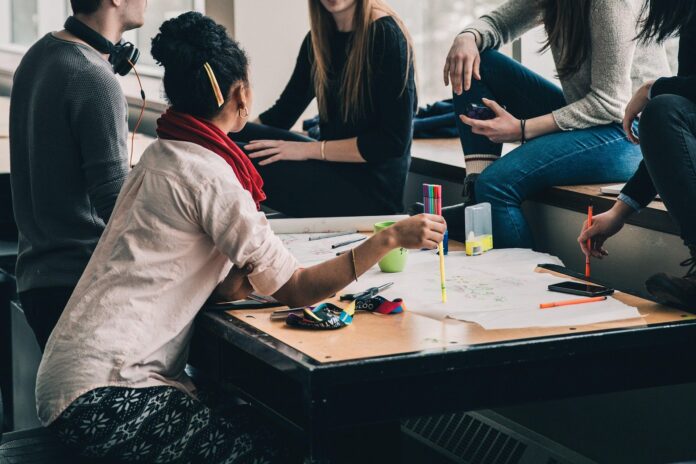**Between rising costs and local initiatives, students in Nice face a new school year marked by increasing expenses. Associations and the City are multiplying measures to ease their daily lives.**
The FACE06 paints a clear picture: the 2025 school year weighs even more heavily on students’ budgets. Inflation, the rise in energy and food prices, as well as increasing rents, are putting pressure on an already vulnerable population.
A non-scholarship student living alone in Nice now needs to budget nearly **€3,900 for settling in at the start of the school year** and more than **€1,700 in monthly expenses**. Rent remains stable but high: **€604 for a studio** and €720 for a small two-room apartment. This is compounded by a security deposit and agency fees that further strain the budget.
**Tuition fees** are also slightly increasing: €178 for a bachelor’s degree, €254 for a master’s, €397 for a PhD, and €628 for an engineering school. The CVEC, a contribution to student and campus life, is €105. Non-EU students pay much more, with €2,895 for a bachelor’s degree and €3,941 for a master’s.
On the health front, the contribution to LMDE remains stable but that to HEYME rises to €544.40 per year. **For food**, a typical monthly basket amounts to **€189**, up 6%, despite the maintenance of university meals at €1 for scholarship recipients and €3.30 for others. **Leisure** costs are not spared, with an increase of **more than 22%** in the budget allocated to outings, cinemas, and digital subscriptions.
Additional expenses include those related to **supplies**: **nearly €450** on average, including a computer, and over €12 monthly for menstrual products. Telecommunications also represent a significant expense, with an average of €44.96 for a mobile plan, up 5%.
FACE06 reminds that despite some national measures like the freezing of CROUS rents, the maintenance of meals at €1, or existing social aid, many students are still struggling.
**Local initiatives to limit precariousness**
In Nice, FACE06 is multiplying solidarity actions. For thirteen years, the association has managed AGORAé, student grocery stores where products are sold at 15% of the market price. A traveling truck, the AGORAé Truck, will soon expand the coverage of this service. The association also offers social housing at reduced rents with the Apparté plan, and a solidarity restaurant offering free complete meals two evenings a week.
A Guide to Social Aid for Azurean Students annually lists the available measures. FACE06 also organizes cultural events, discounted student evenings, fairs to promote professional integration, and rights advocacy sessions on campuses.
In light of this reality, the Nice municipality has also spoken out during this new school year week. Since July, it has been distributing the guide “Jeune & Niçois,” which compiles practical information on health, housing, transportation, and associative engagement.
Two events are also scheduled for September. On the 6th, “Find your roof” brought together all the actors of student housing to advise and guide young people in their search. On September 11, “The Before your Start” will offer a time for discussion with about twenty institutional and associative partners, followed by a free stand-up performance.
Christian Estrosi, mayor of Nice, recalls the importance given to youth: “since 2008, I have placed youth at the heart of public policies. The doubling of the number of students in Nice – more than 51,000 in the area – is a testament to this. We dedicate more than 13 million euros each year to youth because the future of Nice is them!”
Despite these initiatives, **a significant gap remains** between actual expenses and available support. Municipal and associative measures aim to mitigate the effects of the crisis, but they do not suffice to compensate for the continuous rise in living costs.
The 2025 school year thus promises to be **tense** for many students in Nice. They will have to juggle mandatory expenses, available aid, and local solidarity to find a balance.


